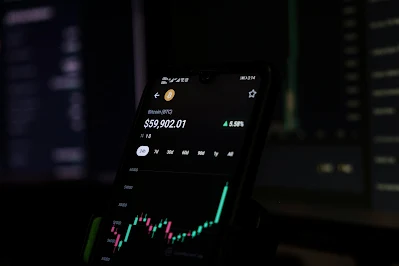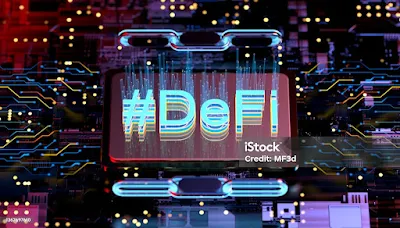What are cryptocurrency wallets?
 |
| The Indispensable Gateway: A Deep Dive into Cryptocurrency Wallets |
In the burgeoning realm of cryptocurrencies, the concept of a "wallet" might initially seem straightforward. However, a nuanced understanding reveals a sophisticated tool that serves as the indispensable gateway to accessing, managing, and interacting with the decentralized world of digital assets.
Beyond the Metaphor: Unpacking the Essence of a Crypto Wallet
At its core, a cryptocurrency wallet is not a physical container holding your coins. Instead, it's a software program or device that securely stores and manages the cryptographic keys that grant you ownership and control over your cryptocurrency holdings. These keys, akin to the keys to your digital vault, are the linchpin for accessing and authorizing transactions within the blockchain ecosystem.
The Cryptographic Duet: Public and Private Keys
Every cryptocurrency transaction revolves around a pair of cryptographic keys:
Public Key: This unique string of characters acts as your public address, analogous to your bank account number. You share this key with others to receive cryptocurrency.
Private Key: This is the all-important secret key, akin to your bank account password. It grants exclusive control over your cryptocurrency funds. Safeguarding this private key is paramount, as its loss irrevocably compromises access to your assets.
A Spectrum of Choices: Navigating the Wallet Landscape
The cryptocurrency world offers a diverse array of wallet types, each tailored to specific needs and risk tolerances:
1. Hot Wallets: Convenience at a Cost
Definition: These wallets maintain a constant internet connection, offering convenient access to your funds.
Examples:
Mobile Wallets: User-friendly apps like Trust Wallet and Coinbase Wallet provide convenient access on the go.
 |
| A Spectrum of Choices |
Web-Based Wallets: Platforms like MetaMask and Binance Wallet offer browser-based access, seamlessly integrating with decentralized applications (dApps).
Desktop Wallets: Software installed on your computer, providing greater control and customization.
Pros:
* Ease of use and accessibility for frequent transactions.
* Seamless integration with dApps for a streamlined user experience.
Cons:
* Increased security risks due to constant internet exposure.
* Vulnerability to hacking attacks, malware, and phishing scams.
2. Cold Wallets: Security Through Isolation
Definition: These wallets are intentionally disconnected from the internet, minimizing the risk of cyberattacks.
Examples:
Hardware Wallets: Physical devices like Ledger Nano S and Trezor offer robust security by storing your private keys offline.
Paper Wallets: Your private keys are printed on a physical piece of paper, providing a highly secure (but less convenient) storage method.
Pros:
* Offer the highest level of security against online threats.
* Ideal for long-term storage of significant cryptocurrency holdings.
Cons:
* Less convenient for frequent transactions.
* May require a steeper learning curve for setup and usage.
3. Hybrid Wallets: Bridging the Gap
Definition: These wallets aim to strike a balance between convenience and security.
Examples: Some hardware wallets offer limited online connectivity for specific functions while maintaining offline storage for the majority of funds.
Beyond Storage: A Multitude of Features
Modern cryptocurrency wallets transcend basic storage functions, offering a range of features:
Multi-currency Support: Many wallets support multiple cryptocurrencies, enabling users to manage diverse portfolios within a single interface.
Decentralized Application (dApp) Integration: Seamless integration with dApps allows users to participate in decentralized exchanges, lending platforms, and other DeFi services directly from their wallet.
Enhanced Security Features: Advanced security measures like two-factor authentication (2FA), biometric authentication, and multi-signature support bolster wallet security.
User-Friendly Interfaces: Intuitive and user-friendly interfaces enhance the overall user experience, making cryptocurrency management more accessible.
Choosing the Right Wallet: A Personalized Journey
Selecting the optimal cryptocurrency wallet requires careful consideration of individual needs and priorities:
Security Priorities: For those holding significant cryptocurrency holdings or prioritizing long-term storage, cold wallets offer the highest level of security.
Frequency of Use: Frequent traders and those who utilize dApps may find hot wallets more convenient.
Technical Proficiency: Choose a wallet that aligns with your technical comfort level. Some wallets are more complex to set up and use than others.
Supported Cryptocurrencies: Ensure the wallet supports the specific cryptocurrencies you intend to hold and interact with.
User Experience: Prioritize a wallet with a user-friendly interface that enhances your overall experience.
Safeguarding Your Crypto: Best Practices
Strong Passwords and 2FA: Utilize strong, unique passwords and enable two-factor authentication whenever possible to enhance account security.
Regular Software Updates: Keep your wallet software updated to patch security vulnerabilities and improve performance.
Phishing Awareness: Be vigilant of phishing attempts, which aim to steal your private keys. Never share your private keys with anyone, under any circumstances.
Secure Backup and Recovery: Regularly back up your wallet and store your recovery seed phrase securely in a safe location, ensuring you can recover your funds in case of device loss or damage.
Diversification: Consider diversifying your cryptocurrency holdings across multiple wallets to minimize risk.
The Evolving Landscape of Cryptocurrency Wallets
The cryptocurrency landscape is constantly evolving, with new and innovative wallet solutions emerging regularly. As the technology matures, we can expect to see further advancements in wallet security, user experience, and functionality.
Conclusion
Cryptocurrency wallets are more than just storage containers; they are the gateways to the decentralized world of digital finance. By understanding the fundamental principles of wallet technology, carefully evaluating your needs and risk tolerance, and implementing robust security measures, users can effectively manage their cryptocurrency holdings and navigate the exciting yet complex world of digital assets.
Disclaimer: This information is for general knowledge and educational purposes only and does not constitute financial advice. Investing in cryptocurrencies involves significant risks, and individuals should conduct thorough research and consult with a qualified financial advisor before making any investment decisions.
